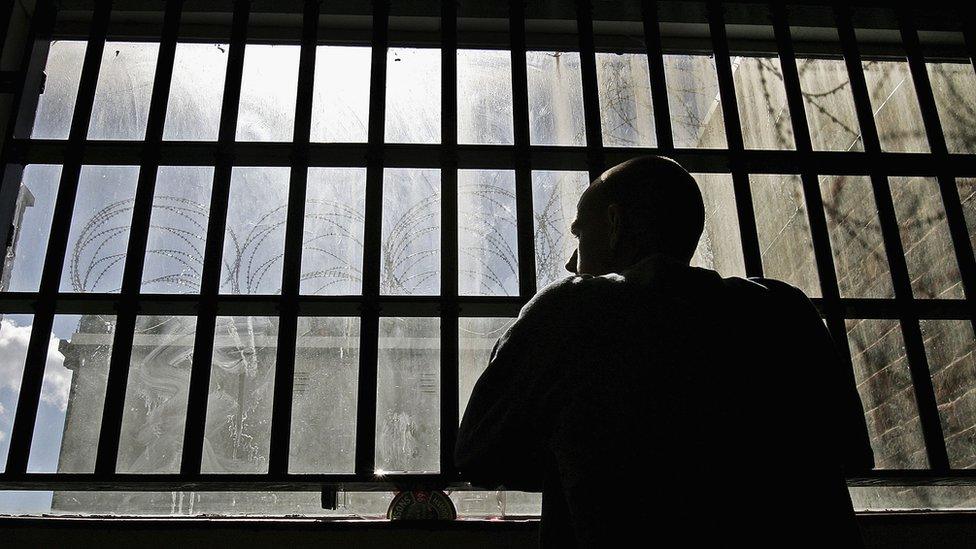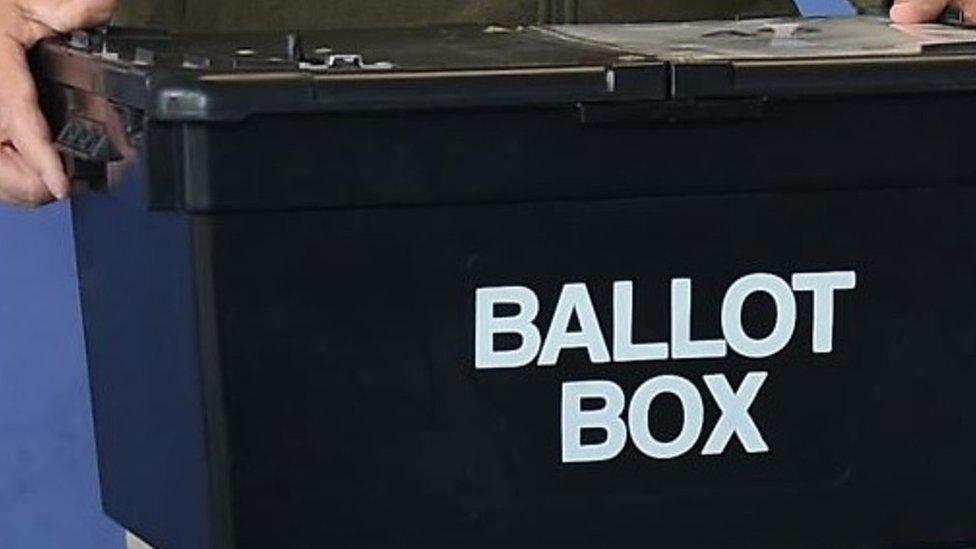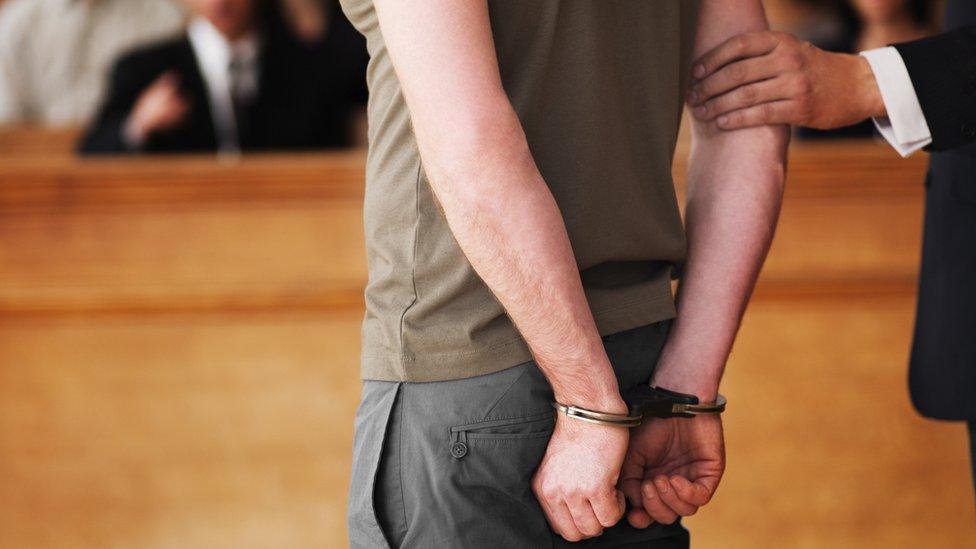Scotland prisoners given temporary voting rights
- Published

Prisoners in Scotland will temporarily be given the right to vote as the Scottish government moves to a "long-term" change in the law.
Inmates will be able to vote in the Shetland by-election on 29 August, triggered by MSP Tavish Scott's resignation.
The move complies with the European Convention on Human Rights.
Holyrood is due to consider permanent voting rights for prisoners in devolved elections after the summer recess.
Why can't prisoners in Scotland vote?
Voting rights for Scottish Parliament elections only became devolved in 2017.
Prior to this a European Court of Human Rights (ECHR) ruling in 2005 said the UK government's blanket ban on prisoner voting breached human rights laws.
Successive UK governments resisted changing the law, prompting a dispute with the European Court.
This ended in 2017 when voting rights were given to about 100 inmates in England and Wales released on "temporary licence".
Following devolution on the issue, Holyrood and the Scottish government became legally obliged to comply with the ECHR.
Long term plan
On Thursday Scottish Constitutional Relations Secretary Michael Russell announced he will issue a remedial order to bring voting rights for the by-election into line with the ECHR ruling.
It will allow prisoners who meet the wider franchise criteria, and who are serving sentences of 12 months or less, to register for a vote in the by-election in time for the 13 August deadline.
It is estimated the order will extend the franchise to fewer than five people.
Mr Russell said it will then be repealed before a full parliamentary debate on legislation for a "long term solution".
MSPs have discussed proposals to extend voting rights to prisoners in Scotland for future devolved elections in the country, with the Scottish Elections (Franchise and Representation) Bill due to be considered when Holyrood returns from the summer recess.
Mr Russell said: "The courts have been crystal clear - the blanket ban on prisoner voting is not compliant with the ECHR.
"Whether people agree with that or oppose it, one thing everyone should agree on is that elections must be compliant with the law.
"And unlike the UK government who did not rectify this issue for more than a decade, the Scottish government is legally obliged under the Scotland Act to comply with the ECHR.
"This is a pragmatic, short-term solution and our intention is that bill currently before Parliament, if passed, will provide the longer-term solution."
However, Scottish Conservative equalities spokeswoman Annie Wells criticised the move for setting a "precedent", saying that prisoners did not "deserve" to vote in future elections.
She said: "The fact this is being done without any proper debate or consultation is particularly unacceptable.
"Victims of crime will be furious that people guilty of assault, domestic violence and serious drugs offences will be able to influence our political future."
- Published18 May 2019

- Published30 January 2019
